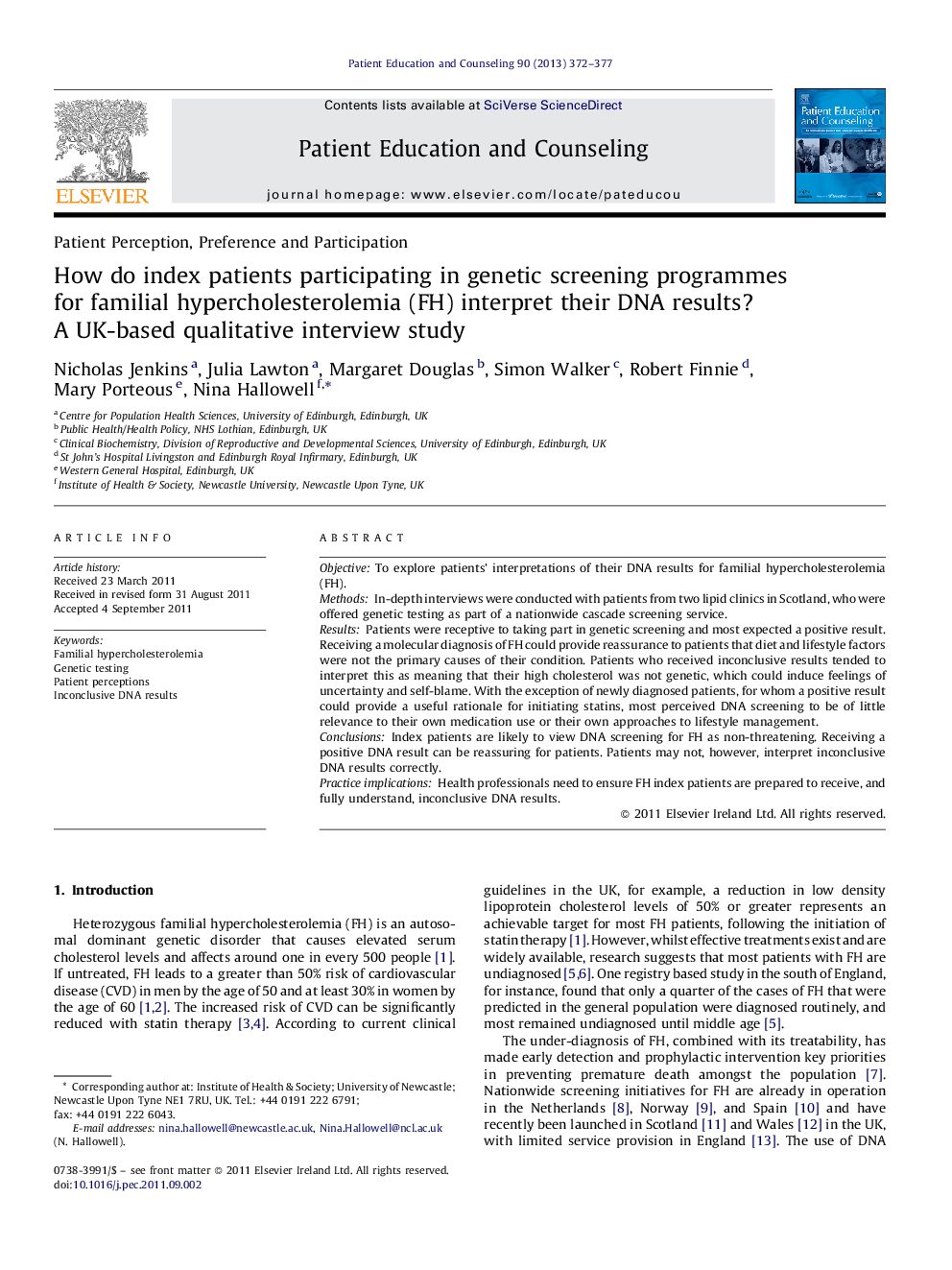| Article ID | Journal | Published Year | Pages | File Type |
|---|---|---|---|---|
| 3813509 | Patient Education and Counseling | 2013 | 6 Pages |
ObjectiveTo explore patients’ interpretations of their DNA results for familial hypercholesterolemia (FH).MethodsIn-depth interviews were conducted with patients from two lipid clinics in Scotland, who were offered genetic testing as part of a nationwide cascade screening service.ResultsPatients were receptive to taking part in genetic screening and most expected a positive result. Receiving a molecular diagnosis of FH could provide reassurance to patients that diet and lifestyle factors were not the primary causes of their condition. Patients who received inconclusive results tended to interpret this as meaning that their high cholesterol was not genetic, which could induce feelings of uncertainty and self-blame. With the exception of newly diagnosed patients, for whom a positive result could provide a useful rationale for initiating statins, most perceived DNA screening to be of little relevance to their own medication use or their own approaches to lifestyle management.ConclusionsIndex patients are likely to view DNA screening for FH as non-threatening. Receiving a positive DNA result can be reassuring for patients. Patients may not, however, interpret inconclusive DNA results correctly.Practice implicationsHealth professionals need to ensure FH index patients are prepared to receive, and fully understand, inconclusive DNA results.
